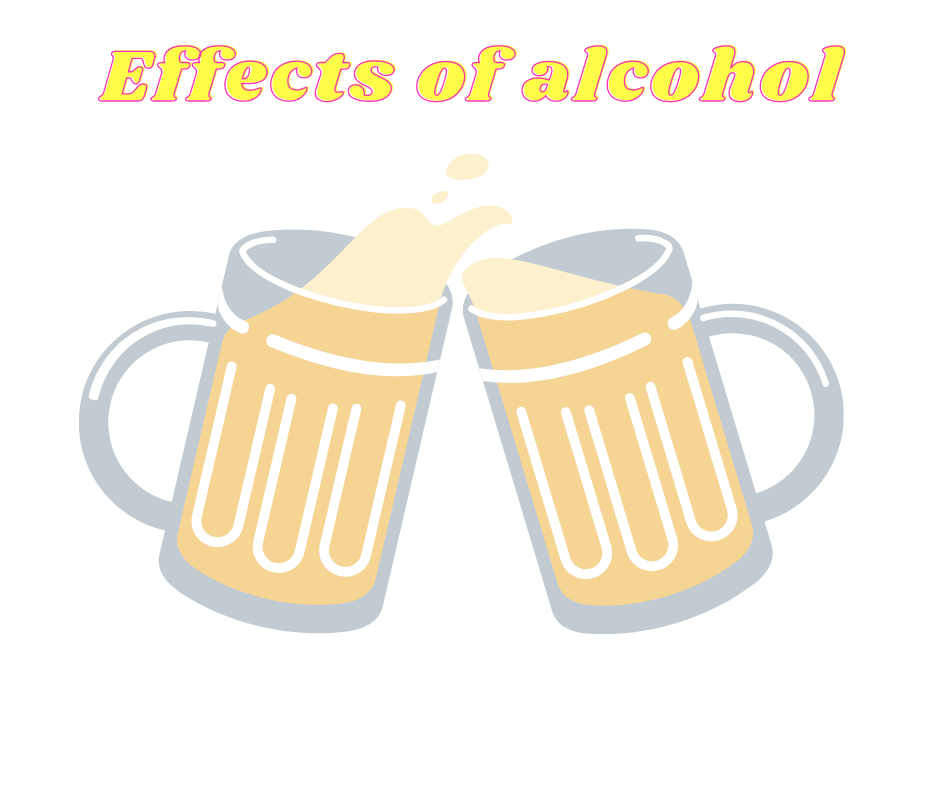Light to moderate alcohol consumption – up to one drink per day for a woman and 1-2 glasses per day for a man – would be expected to reduce mortality, risk of coronary heart disease, diabetes or stroke prevalence. Are effects of alcohol good or bad for your health and how much should you drink?
American researchers who publish an article on this subject in Mayo Clinic Proceedings confirm that cardiovascular benefits are observed with a light to moderate consumption of alcohol, ideally of red wine taken before or during the evening meal. But the most important thing in their research is dose of alcohol that people consume and serious toxic effect in an exposed individual. The overconsumption of alcohol is in fact is linked to serious pathologies: cirrhosis, stroke, cancers of the colon/rectum, breast, larynx and liver. Alcohol also increases violence and the risk of traffic accidents.
Regarding general mortality, a meta-analysis involving 1,2 million people found that small amounts of alcohol to moderate alcohol consumption was associated with decreased mortality: the maximum protection was raised with half to one drink per day for women and 1 to 2 glasses a day for men. But 2.5 glasses a day for women and 4 a day for men increased the risk of death.
The effects of alcohol
Chronic consumption of alcohol in large amounts can lead to a condition called alcoholic cardiomyopathy. Consume a lot of alcohol (four to five drinks a day for several years) leads to weakening of the heart muscle. This weakening becomes even more important when a person consumes alcohol in excessive amounts.
Excessive consumption of alcohol (on the same occasion, four or more drinks for women, and five or more drinks for men) and heavy alcohol consumption can increase blood pressure and the risk of developing arrhythmias (irregular heartbeat), such as atrial fibrillation. Such alcohol consumption can increase the risk of death, whether or not the person has heart disease. People who survive a heart attack and report excessive alcohol use are twice as likely to die of any condition, including heart disease, as those who do not consume alcohol excessively.
There is no doubt that excessive alcohol consumption, even once a week, puts you at higher risk for heart disease or stroke. We tend to minimize this point, but if you are trying to lose weight healthily, reducing your alcohol intake can save you a lot of calories. Light and non-alcoholic beers are a better choice than standard beers when it comes to caloric and alcohol content.
Summary and conclusions
If you do not consume alcohol, you do not deprive yourself of any benefit and it is not recommended that you change your good habits. The risk of cancer, liver disease, pancreatitis, accidents, suicide and exposure to violence are also important negative effects of alcohol.
There are better ways to reduce the risk associated with heart disease, such as exercising, eating a balanced diet, and quitting smoking and alcohol at the same time. All of these methods offer benefits without the added risks associated with alcohol consumption. However, consuming a small amount of alcohol from time to time is not necessarily detrimental to your health, ergo, moderation is the solution. As there are some exceptions, it is important to talk to your doctor and pharmacist about your use of alcohol. Some people should avoid taking it to avoid aggravating their condition. Mixing alcohol and certain medications can also cause dangerous side effects that can be fatal.
Modifying alcohol consumption
Limit your alcohol consumption in the following ways: two drinks a day most days, for a maximum of 10 per week for women and three drinks a day most days, for a maximum of 15 per week for men. Consumption is: 341 ml or 1 bottle of beer at normal alcohol level (5%), 142 ml or 5 oz of wine (12% alcohol) 43 ml or 1½ oz of spirits (40% alcohol content). Chronic consumption of alcohol can raise blood pressure and contribute to the development of heart disease and stroke. If you drink alcohol, avoid taking more than: two drinks a day for up to 10 drinks a week for women and three drinks per day for up to 15 drinks per week for men
Take care of your health and safety. If you are worried about the effects of alcohol on your health, consult your doctor or pharmacist.

